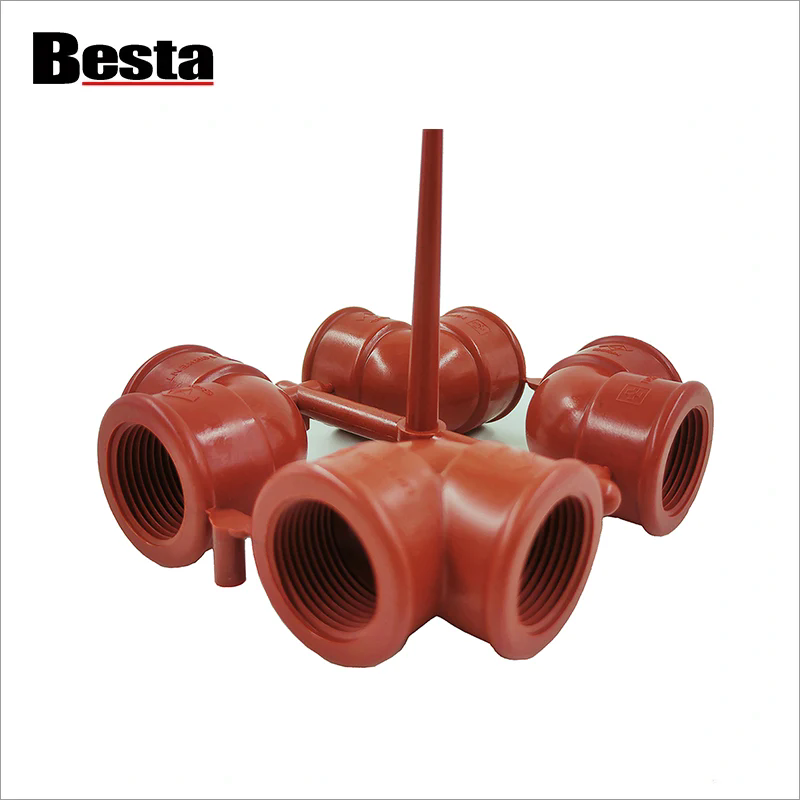Exploring PPH Fitting Molds: The Backbone of Modern Plumbing Solutions
2024-10-18
In the world of plumbing, the efficiency and reliability of fittings play a crucial role in ensuring leak-free connections. Among the various materials and techniques available, PPH (Polypropylene Homopolymer) fittings are increasingly becoming a preferred choice due to their excellent chemical resistance, lightweight nature, and ease of installation. At the heart of producing these fittings lies the PPH fitting mold. This blog will delve into the significance of PPH fitting molds, their design, manufacturing processes, and applications in modern plumbing solutions.
What Are PPH Fitting Molds?
PPH fitting molds are specialized tools used in the injection molding process to create polypropylene fittings for various plumbing applications. These molds are designed to form the intricate shapes and dimensions required for fittings like elbows, tees, reducers, and connectors. The precision and quality of the mold significantly influence the final product's performance and durability.
Key Features of PPH Fitting Molds:
1. Precision Engineering:
- PPH fitting molds are crafted using advanced engineering techniques, ensuring accurate dimensions and smooth finishes that facilitate proper sealing and functionality.
2. Durable Construction:
- Made from high-quality materials like steel or aluminum, these molds are built to withstand the rigors of repeated use while maintaining their integrity and precision.
3. Customization:
- Molds can be tailored to produce a variety of fitting designs and sizes, catering to specific customer requirements and industry standards.
4. Efficient Production:
- Injection molding using PPH fitting molds allows for high-volume production, reducing manufacturing costs and time while ensuring consistency in quality.
Benefits of PPH Fitting Molds
1. Chemical Resistance:
- PPH fittings manufactured using these molds exhibit excellent resistance to a wide range of chemicals, making them ideal for various applications, including corrosive fluids.
2. Lightweight and Easy to Handle:
- PPH fittings are lightweight, which simplifies handling and installation. This characteristic is especially beneficial in large-scale plumbing projects.
3. Cost-Effectiveness:
- The efficiency of the injection molding process reduces production costs, allowing manufacturers to offer competitive prices for high-quality fittings.
4. Environmentally Friendly:
- PPH is a recyclable material, making it a sustainable choice for environmentally conscious plumbing solutions.
Manufacturing Process of PPH Fitting Molds
Creating a PPH fitting mold involves several critical steps:
1. Design:
- The first step is designing the mold using CAD software. This phase includes detailed planning of the mold's geometry and features based on the specifications of the desired fittings.
2. Machining:
- Once the design is finalized, the mold is machined from solid metal blocks. Precision machining ensures that all dimensions and features are accurately created.
3. Assembly:
- After machining, the various components of the mold are assembled. This stage includes installing components such as pins, ejectors, and cooling channels.
4. Testing:
- The mold undergoes rigorous testing to ensure it functions correctly and produces fittings that meet quality standards. Adjustments may be made to optimize the mold's performance.
5. Production:
- Once the mold passes testing, it is used in the injection molding process to produce PPH fittings. The polypropylene material is heated and injected into the mold, where it cools and solidifies to form the final product.
Applications of PPH Fitting Molds
PPH fittings produced using these molds find applications in various industries, including:
1. Plumbing Systems:
- Used for residential and commercial plumbing, PPH fittings connect pipes in water supply and drainage systems.
2. Chemical Processing:
- The chemical resistance of PPH fittings makes them ideal for transporting various fluids in chemical processing plants.
3. Agriculture:
- PPH fittings are used in irrigation systems to ensure efficient water distribution.
4. Food and Beverage Industry:
- With their resistance to chemicals and ease of cleaning, PPH fittings are suitable for food processing and beverage systems.
Conclusion
PPH fitting molds are essential tools in the manufacturing of high-quality polypropylene fittings for plumbing and various industrial applications. Their precision engineering and durable construction ensure the production of reliable fittings that meet the demands of modern plumbing solutions.
As the plumbing industry continues to evolve, the importance of advanced manufacturing processes and materials cannot be overstated. PPH fitting molds play a pivotal role in producing fittings that are not only efficient but also environmentally friendly and cost-effective.
Investing in high-quality PPH fitting molds can lead to enhanced production capabilities, improved product quality, and ultimately, greater customer satisfaction. As you explore plumbing solutions, consider the benefits of PPH fittings and the advanced molds that make them possible, ensuring your projects are completed with reliability and excellence.



